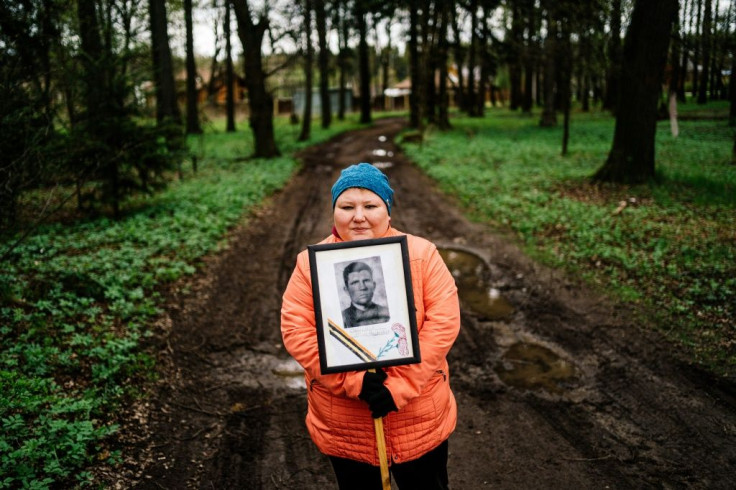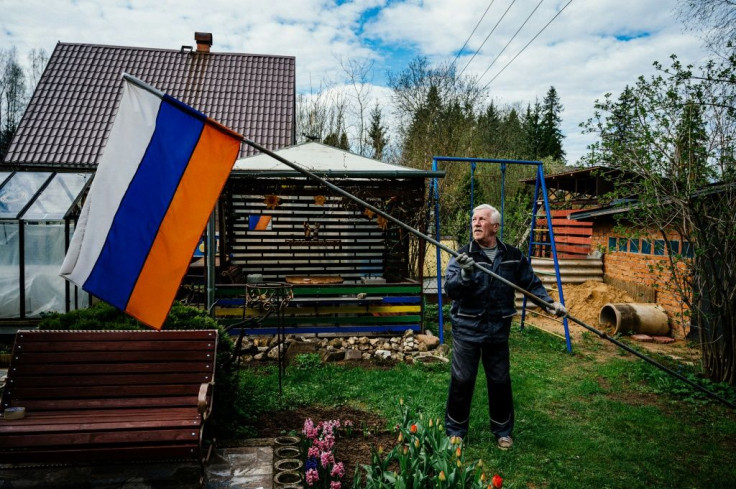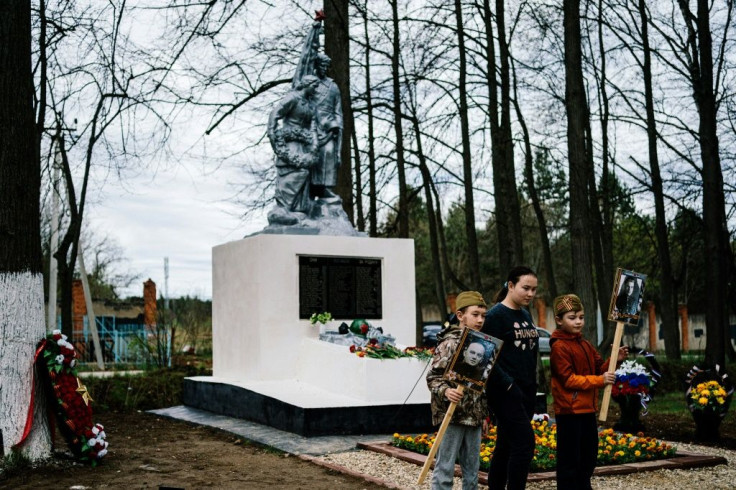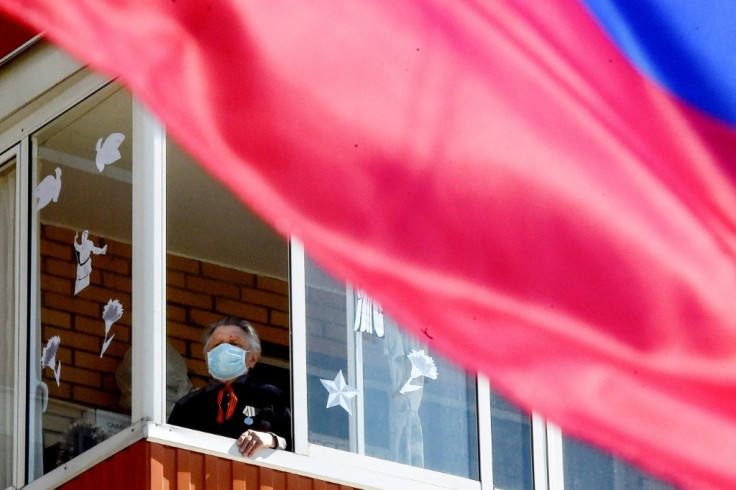Russians Mark May 9 In Private Family Traditions
Like every May 9, Gennadiy Matveyev observed a tradition this Friday at his little dacha near Moscow: he and his wife Galina raised the Russian flag to remember the victory over Nazi Germany in 1945.
"We are Russian and we have our memories. My wife's father was in the war, and his mother was in a concentration camp," 71-year-old Matveyev said.

"My father was in the police and my mother worked near the frontline, feeding the soldiers."
Matveyev's personal flag-raising tradition started two decades ago on his patch of land in the countryside, where the couple grows tulips and hyacinths.
It continued year after year, the banner soaring six metres in the air only on May 9th, though he changed the red Soviet flag to the Russian tricolour fifteen years ago.

This year it persevered despite the coronavirus lockdown across the country, though Matveyev had to forego a trip to the local war monument to lay a commemorative bouquet, sheltering at home as recommended.
"No means no," he says. "We'll celebrate at home. A flag at home, a drink at home, television at home, Putin at home."
President Vladimir Putin expected to oversee a massive parade with visiting dignitaries, but the celebrations were limited to an aerial display as he made a simple televised speech to the nation from the Kremlin.

Like Matveyev, Russians are celebrating the occasion privately, with a national minute of silence scheduled in the evening, and the firework display available to view only from balconies or TV.
"It's always been a family celebration, and it remains thus," he said.

While May 9 has become a showpiece of the Russian state and a subject of ideological debate with the West, it also remains a private affair, with almost every family having lost relatives in the war.
A traditional march called Immortal Regiment, when people walk with portraits of family members who fought in the war, was replaced this year with an online version.
Nearly three million people have sent in names and photos of their ancestors who participated in the war effort, which are being broadcast on the project's website, organisers said.
"For me Victory Day has always been a personal affair, not the spectacle organised by the government," said Ivan Semyonov, a 35-year-old Muscovite walking his dog.
"Under confinement, it's still a family celebration, when we remember loved ones who died."
In Sokolniki, a village not far from Luzhki, loudspeakers transmitted Soviet songs about the war, while locals were seen bringing flowers to a local monument to fallen soldiers -- one of thousands across the country.
"Its our duty to honour the memory, and no infection can stop us," said 60-year-old Tatiana Khabarova, a medic.
Wearing medals, 90-year-old Anastasiya Ivanova, said her father had continued to volunteer fighting on the frontline even after getting injured by a bullet that pierced his lungs in Stalingrad.
"I come here all the time to honour this memory," she said, explaining her decision to defy the strict lockdown for people over 65.
"They forbade us to leave the house, but my grandson brought me here," she smiled.
© Copyright AFP 2024. All rights reserved.




















